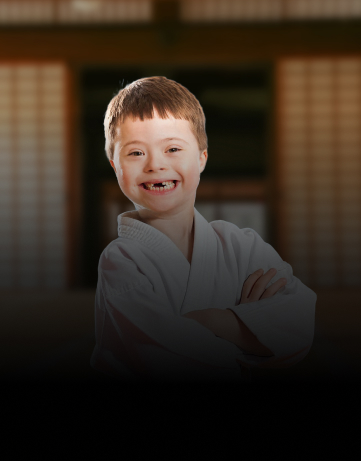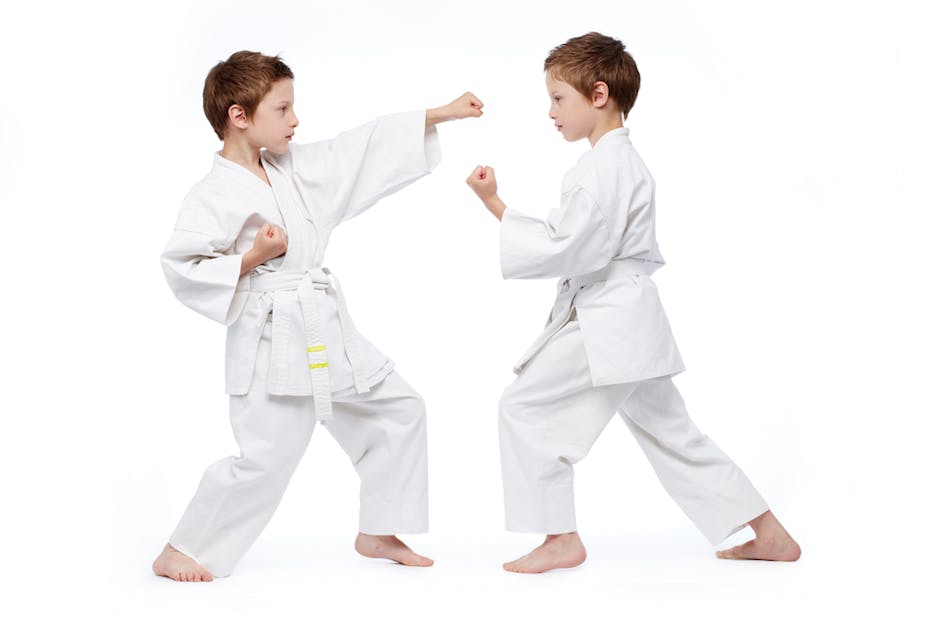Legacy Martial Arts Salisbury – Learn from Certified Instructors in a Motivating Setting
Wiki Article
Exactly How Karate for Children Can Increase Confidence and Discipline in Youthful Martial Artists
Karate for youngsters uses an one-of-a-kind possibility to build self-confidence and discipline in young martial musicians. As they find out brand-new strategies and face challenges, they not only obtain skills but additionally create a solid sense of self-respect. This structured setting encourages them to appreciate the trip of improvement. Exactly how does this training convert right into their day-to-day lives? Discover the deeper connections that make karate more than simply a sport.The Value of Self-confidence in Childhood Years Growth
Self-confidence is an essential structure block in childhood years growth. When you support your youngster's self-esteem, you encourage them to face difficulties, take risks, and express themselves easily. Youngsters with self-confidence are much more going to explore social situations and new tasks, which can bring about lasting relationships and useful experiences.Encouraging your youngster to get out of their comfort area promotes durability. They discover that failure isn't the end however instead a stepping stone to success. By commemorating their success, no matter exactly how tiny, you aid them acknowledge their capacities and worth.In this trip, support and positive support from you play a crucial role. Whether it's with appreciation or just existing, your involvement improves their self-confidence. As they grow, this self-assurance becomes a long-lasting asset, outfitting them to browse both challenges and possibilities with a solid feeling of self.How Martial Arts Educates Technique and Emphasis
Martial arts aids you construct technique and emphasis with its organized training program. As you exercise mindfulness throughout each session, you'll find out to focus better both on and off the mat. Plus, setting and accomplishing objectives in martial arts enhances your ability to remain mindful and committed.Structured Training Regimen
While you engage in karate training, you'll promptly find how an organized routine imparts discipline and focus in young professionals. Each class adheres to a specific style, consisting of warm-ups, method practice, and sparring. This consistency shows you to commit and value the procedure to renovation. As you find out methods and types, you establish a sense of obligation for your very own progress.The structured environment encourages you to establish objectives, whether understanding a new belt or refining a kata. You'll find that staying focused throughout drills and classes sharpens your concentration. The discipline you cultivate in karate extends beyond the dojo, favorably impacting your schoolwork and day-to-day regimens. Each session reinforces the relevance of dedication, assisting you turn into a much more disciplined person.Mindfulness in Practice
As you practice karate, you'll discover that mindfulness becomes an important component of your training. Each step requires your complete interest, helping you remain focused on the here and now moment. You'll learn to disregard interruptions and concentrate on your breathing, activities, and objectives. This enhanced awareness sharpens your reflexes and improves your discipline.During sparring or kinds, you'll uncover the relevance of being psychologically present - Karate Salisbury MD. You'll observe just how this emphasis not just improves your technique however likewise develops your self-confidence. By exercising mindfulness in karate, you cultivate patience and durability, vital attributes that prolong past the dojo. By doing this, martial arts teaches you to harness your mind, aiding you develop a self-displined method to challenges both on and off the floor covering
Setting Goal Techniques
Setting goals in karate isn't almost gaining belts; it's an effective method to grow self-control and emphasis. When you set details, achievable targets, you create a roadmap for your progress. Rather of simply intending to improve your kicks, try focusing on grasping a specific method each month. This strategy keeps you determined and engaged.Breaking down larger goals into smaller sized, convenient actions aids you track your progression and commemorate tiny success along the road. Whether it's developing your position or boosting your sparring endurance, every goal strengthens your commitment. As you attain these goals, you'll build confidence in your skills and develop a solid feeling of discipline that expands beyond the dojo right into everyday life.Building Resilience Via Martial Arts
Martial arts, particularly karate, provides youngsters an unique opportunity to build durability in a helpful atmosphere. In courses, they deal with difficulties that press their limits, whether it's mastering a new technique or sparring with a partner. Each obstacle, like a missed out on kick or a shed suit, becomes a possibility to find out and grow.As they exercise, children learn to accept pain and keep attempting, even when things get tough. They uncover that failing isn't the end; it becomes part of the trip. This state of mind helps them recuperate more powerful, not just in the dojo, yet in day-to-day life.With each difficulty they conquer, your kid builds confidence in their capacity to tackle obstacles, fueling their decision. Via karate, they'll comprehend that durability isn't practically physical strength; it has to do with psychological grit and perseverance, equipping them to face whatever life throws their means.The Role of Respect in Karate Training
Regard is a fundamental principle in karate training, cultivating a society of technique and friendship among pupils. When you step onto the dojo floor, you're not just learning strategies; you're also learning to value your teachers, peers, and the art itself (Karate Salisbury MD). Bowing at the beginning and end of course isn't simply a formality; it represents your acknowledgment of others' dedication.as and initiatives you establish shared respect, you'll locate it boosts your knowing experience. You'll listen extra diligently to your instructor and gain insights from fellow pupils. This atmosphere encourages constructive criticism and support, enabling everybody to grow together.Moreover, regard cultivates self-control. Identifying the value of effort and humility assists you remain focused on your training. In turn, this regard converts right into your everyday life, enhancing your communications and connections outside the dojo. Through karate, you discover that respect is necessary for individual development and community buildingAccomplishing and establishing goals Success in Martial arts

Social Skills and Team Effort in the Dojo
While training in the dojo, children normally establish necessary social abilities and teamwork capabilities. As they exercise along with peers, they learn to interact effectively, share area, and assistance each other. Each class presents chances for partnership, whether it's during partner drills or team exercises. read more This teamwork promotes relationships and produces a sense of belonging, making the dojo a nurturing environment.Kids additionally acquire valuable conflict resolution abilities. When they encounter challenges, such as disputes during sparring, they find out to navigate these scenarios constructively. They exercise perseverance and compassion, understanding that every person has various staminas and weaknesses.Moreover, taking part in group tasks cultivates a feeling of responsibility. You'll see your child discovering to count on colleagues and take obligation for their role in a group. These experiences not only enhance their martial arts trip but likewise equip them with social tools they'll lug into various other areas of life.
The Long-Term Perks of Karate Beyond Youth
As children expand up and change into their adult years, the benefits of karate expand far beyond the dojo. You'll locate that the technique and emphasis learned through karate can convert into your specialist and academic life. Establishing and achieving objectives in martial arts cultivates a strong job ethic, which can push you to master any type of endeavor.Moreover, the confidence obtained from competing and mastering methods can enhance your self-confidence, helping you tackle obstacles head-on. This resilience comes to be very useful as you deal with the uncertainties of adulthood.Additionally, the social skills developed through synergy and friendship in the dojo can result in better relationships in both personal and expert balls. You'll discover to interact successfully, willpower problems, and construct an encouraging network.Ultimately, karate shapes not just competent martial musicians, however well-rounded individuals prepared to handle the world.Often Asked Inquiries
What Age Is Ideal to Beginning Karate for Children?
You can begin martial arts as early as age 4 or five, however it often depends upon your child's maturation and passion. Discovering a course that matches their age and energy level makes a large distinction.Exist Any Kind Of Wellness Conveniences From Exercising Karate?
Yes, exercising karate offers countless wellness benefits. You'll improve your toughness, coordination, and adaptability while improving cardiovascular fitness. Plus, it enhances focus and psychological health, making it a wonderful option for total physical and psychological health and wellness.Exactly How Typically Should Kids Go To Karate Classes?
You must urge your youngsters to attend karate classes at least two to 3 times a week. Uniformity assists them find out strategies effectively and establish abilities, making their experience a lot more satisfying and pleasurable in the future.Can Karate Help With Managing Anxiety in Children?
Yes, martial arts can aid take care of anxiety in kids. It shows emphasis and self-control while giving a secure electrical outlet for power. You'll see your child growing much more confident and tranquil as they exercise on a regular basis.What Gear Is Needed for Children Beginning Martial Arts?

Report this wiki page